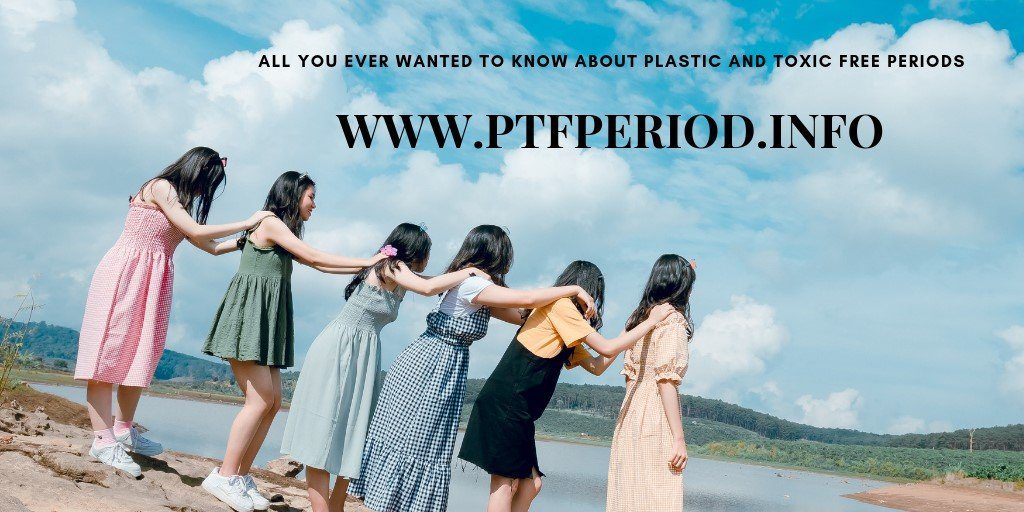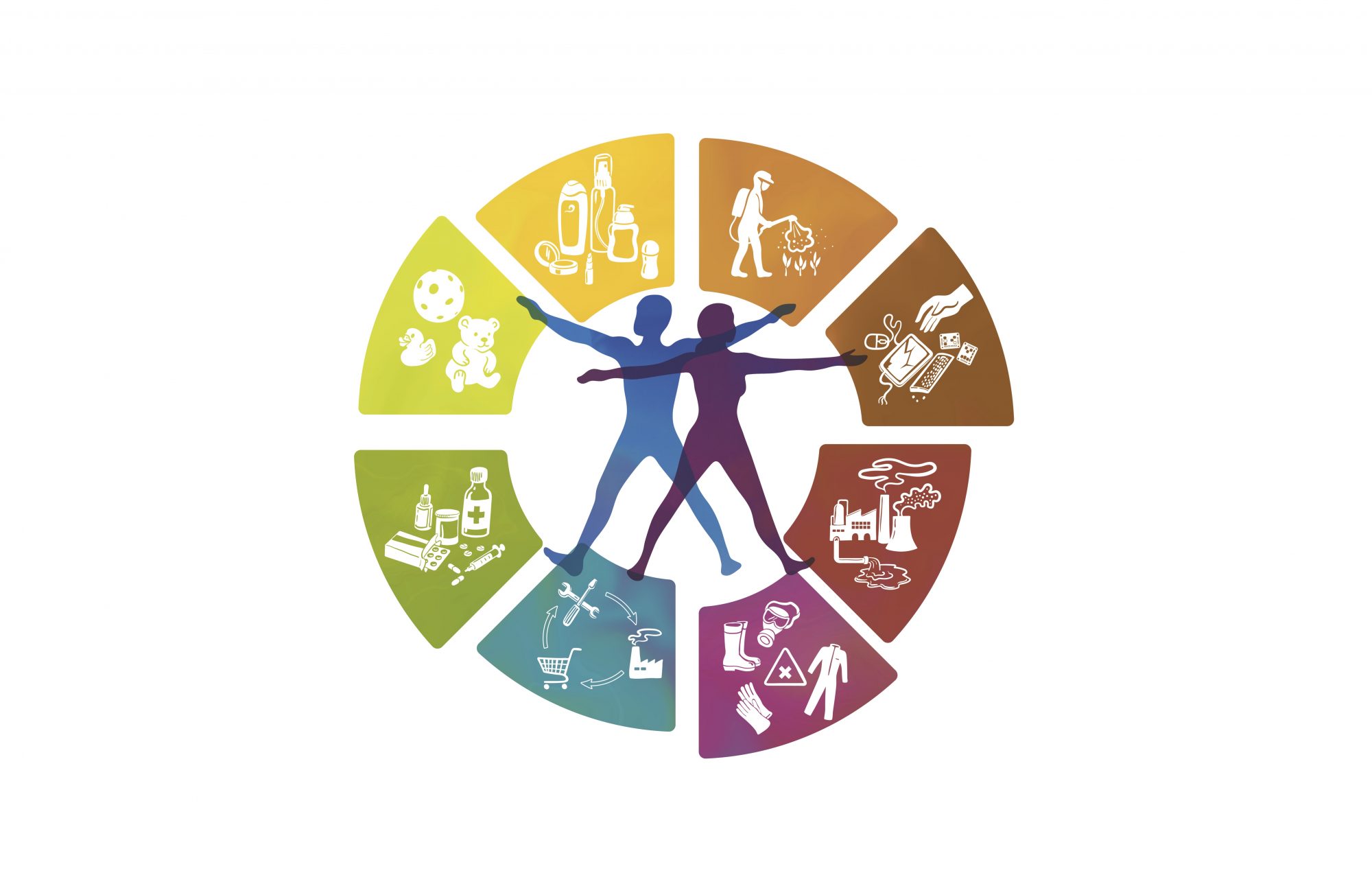#Expert – Blog Series: How to create a gender-just healthy planet
by Olga Speranskaya and Alexandra Caterbow, HEJSupport Co-directors

The future where plastics- and toxic free female sanitary products are affordable and available globally and where the environment is free from a top-ten source of non-value plastic waste is just around the corner. Many good alternatives exist, in few countries, some regulation is on its way and the topic surfaces slowly on the agenda of decision makers. Now is the time to bring solutions to the public and to decision makers and raise pressure on big manufacturers to produce healthy and environmentally friendly products.
With the new Clearing House website www.ptfperiod.info highlighting the issue, information about women and chemicals with the focus on toxic chemicals and plastic in menstruation products becomes clear and easy to understand. Readers do not need to spend time searching through numerous resources to find information they need. Everything is available in just one click.
The website is connected to global and national campaigns on toxic free menstruation products happening around the world and organized by our partners. It includes twitter messages on the issue posted from different countries and regions with hashtags such as #ptfperiod, #periodaction, #PlasticFreePeriods, #periodwithoutplastic.
The Clearing House website is the cornerstone of cooperation, outreach, information sharing, and awareness raising. It provides an excellent basis that helps to elevate national activities of single organisations to a global movement. The project resulted in building a coalition of NGOs working on plastic and toxic free period in many different countries, regions and globally.
What role do hygiene products play in the life of people?
Hygiene products play an essential role in women’s life by helping them stay clean and confident. They are comfortable and convenient which makes women depend on them, sometimes daily. Conventional stores suggest a variety of hygiene products including external products such as sanitary pads and panty liners as well as internal tampons and menstrual cups. Women chose what suits better for their lifestyle.
The average woman will use 12,000 to 16,000 disposable feminine hygiene products in her lifetime and it can take up to 100 years or more for something like a plastic pad or applicator to break down. Noting that early puberty is becoming more frequent in our days (in part as a result of chemical exposures¹), the use of feminine hygiene products will be skyrocketing in the near future. During a woman’s fertile years, period-related garbage makes about 0.5% of her “personal landfill load” which is comparable to the percentage of the annual trash made from plastic plates and cups.
Can toxic chemicals in hygiene products impact the health of women?
Women and the environment are highly contaminated with hazardous plastic chemicals in feminine hygiene products. Conventional sanitary pads are made from up to 90% crude oil-sourced plastic and can contain associated plasticizing chemicals like BPA and BPS, and petrochemical additives which are known endocrine disrupting substances and are linked to e.g. infertility, heart diseases and cancer. Phthalates, mainly used as plasticizers, are a common ingredient in tampon applicators, and are known to disrupt hormone function and may lead to multiple organ diseases. Phthalates can leach from finished products when handled. Many of these chemicals can cross the placenta, some of them more readily than others. The recent research found troubling bisphenol concentrations in the placenta and cord blood² which
highlights the issue that chemicals a mother is exposed to can impact the development of the fetus.
How to manage hygiene products when they become waste?
If conventional hygiene products contain plastic, they cannot be recycled to reduce their load on the environment, as they are designed to collect human waste. In addition, these products are largely made of low-density polyethylene. While plastic bottles and containers can often be recycled, hygienic products are considered to be single-use, non-value plastic products which are subject to quick disposal. They end up in incinerators, landfills, illegal dumping grounds, water sources, seas and oceans. They cannot be composted or repurposed into new products. Waste pickers avoid collecting this type of garbage as it is disgusting and of no use to them. According to a Life Cycle Assessment of tampons conducted by the Swedish Royal Institute of Technology, recycling of low-density polyethylene is energy consuming as it requires high amounts of fossil fuel generated energy. As a result, used hygiene products usually end up either in landfills, sewer systems, waterways or are incinerated.
The multi-billion-dollar industry that manufactures feminine and other hygienic products, profits from the dominance of disposable products. They have succeeded in making consumers believe that disposables are not only the most convenient and affordable option, but also have no health or environmental risks.
Better solutions to conventional feminine hygienic products exist but are not available in many countries or are unknown to women making them a limited as a safer option.
What information does the Clearing House website provide?
To help people find information on hygienic products they need, the new Clearing House website provides resources regarding global campaigns, new science, toxic free alternatives and more. It also acts as the platform for sharing knowledge and experience, advocacy work, new ideas and advices for everyone who menstruates. In addition, it shares presentations at the recent webinar on toxic and plastic free menstruation products that we organised to discuss important issues about period products, their effects on the health of people and the environment, and what difference we can make to minimise the negative impact and ensure the availability of more sustainable, plastic and toxic free options.
For more information about the Clearing House website www.ptfperiod.info and how to become a partner, please contact HEJSupport team at info[at]hej-support.org
(1) https://www.nwhn.org/early-puberty-for-girls-the-new-normal-and-why-we-need-to-be-concerned/
(2) https://www.pnas.org/content/117/9/4642
